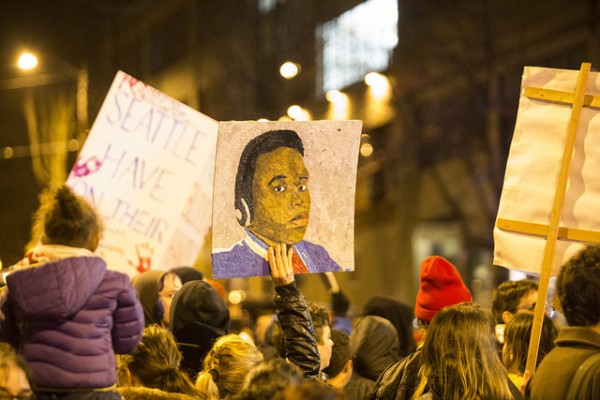Three months ago, Nigerian author Teju Cole, wrote this New Yorker piece titled “Black Body: Rereading James Baldwin’s ‘Stranger in the Village.'”
In the wake of what happened last night in St. Louis, Cole’s concluding remarks in the essay is timely food for thought.
For those who are not familiar with the situation, Mike Brown, a young African American man was killed by a white police officer. Yesterday, the grand jury decided not to indict the officer who many believe unjustly killed the young man.
Cole’s remarks here is a fitting place to begin to think about the larger issues at stake in the outrage against what many see as an instantiation of systemic racism in America.
This fantasy about the disposability of black life is a constant in American history. It takes a while to understand that this disposability continues. It takes whites a while to understand it; it takes non-black people of color a while to understand it; and it takes some blacks, whether they’ve always lived in the U.S. or are latecomers like myself, weaned elsewhere on other struggles, a while to understand it. American racism has many moving parts, and has had enough centuries in which to evolve an impressive camouflage. It can hoard its malice in great stillness for a long time, all the while pretending to look the other way. Like misogyny, it is atmospheric. You don’t see it at first. But understanding comes.
“People who shut their eyes to reality simply invite their own destruction, and anyone who insists on remaining in a state of innocence long after that innocence is dead turns himself into a monster.” The news of the day (old news, but raw as a fresh wound) is that black American life is disposable from the point of view of policing, sentencing, economic policy, and countless terrifying forms of disregard. There is a vivid performance of innocence, but there’s no actual innocence left. The moral ledger remains so far in the negative that we can’t even get started on the question of reparations.
— Teju Cole, The New Yorker
Image: Tiffany Von Arnim Via Flickr.









Perception, Power and Race in UK Arts | THE DIALOGUE November 17, 2015 23:21
[…] Links Origins of Black Body Politics 21st century disposability of Black Life #ThinkingFerguson The climate – US 1 Unarme African American men killed by US police The climate – US 2 […]